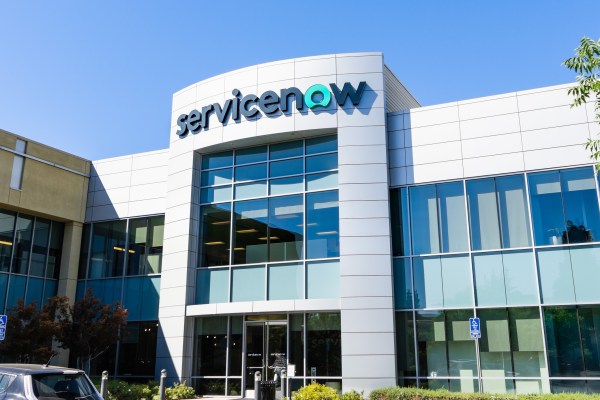ARTICLE AD

Every enterprise software company out there is working to bring more workflow automation and AI to the platform. ServiceNow has been on this journey for some time now, and given the kind of data it collects via interactions on its platform, it’s building more refined models.
Part of the shift to AI comes internally by building, some come via acquisitions and some come from partnering widely, says VP of corporate business development Philip Kirk. But whatever the source, it’s all in service building a stronger platform, he says.
“It is kind of three dimensional chess right now to figure out whether to build, buy or partner. I think the biggest thing that we try to prioritize is how we can make decisions that are in the long-term, best interest of our customers, and that differentiate us from what we know we’re world class at, which is enterprise automation in our platform,” Kirk told TechCrunch.
Lara Greden, an analyst at IDC who covers ServiceNow, says going beyond building is a big part of every company’s strategy when it comes to AI. “Acquisition and strategic partnerships are an essential element of corporate strategy in the AI era,” Greden told TechCrunch.
“Like other major waves of technology innovation, breakthrough capabilities in generative AI are coming through entities that have laser focused on the tech itself, in other words: startups. ServiceNow’s acquisition strategy has been in line with our expectations for being a leader in accelerating value from generative AI.”
ServiceNow has built on that in its latest releases, dubbed Washington D.C. The company has embraced generative AI in a way that makes sense in the context of the information that the platform monitors and collects, says Jeremy Burns, VP of AI products at ServiceNow, who came to the company when it acquired his previous one, Element AI, at the end of 2020. That means providing the kind of features for customers looking to take advantage of generative AI in a customer service context without having to build it themselves.
“And so if you look at what’s coming up in the Washington release, we provide all kinds of features that companies would not have really gone out and built, or people who want to develop AI projects would not have been able to pull together proof of concept, and us building it in the platform for them just makes total sense,” he said.
Keith Kirkpatrick, an analyst at the Futurum Group, says ServiceNow is making it easier for people who have some domain knowledge to build things like intelligent workflows without bringing in a developer or workflow expert.
“ServiceNow’s focus has been on integrating generative AI to improve entire workflows, not just single processes or tasks. This is a critical point of differentiation for them, as it allows for intelligent automation of multi-step processes that once required a significant amount of effort and switching between applications to complete,” Kirkpatrick said.
Virtual agents or AI agents are also taking center stage in this release, which would make sense given ServiceNow’s capabilities helping answer customer questions and complete tasks. And just as ServiceNow is building AI capabilities for its customers, it’s working with partners where it makes sense and it’s outside of their areas of expertise, Greden said
“The company’s focus on the conversational capabilities in Virtual Agent is important because getting conversational generative AI right offers significant potential for ROI for end customers. However, getting it right is not easy,” she said. “That’s one reason platform vendors are strategic partners of choice to organizations in the AI era, because they can take on the data science work of getting the technology to work and work well. They also play an important role in guiding customers with best practices around data governance and control.”
The Washington release is available starting on Wednesday for all ServiceNow customers.

 9 months ago
64
9 months ago
64 

